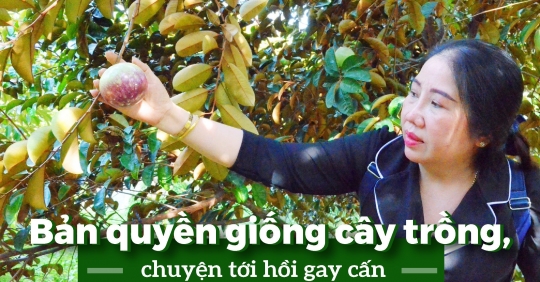Copyright protection creates a great dynamic
Recently, the transfer of ownership of the red-fleshed dragon fruit variety LD1, bred by the Southern Fruit Institute with funds from the state budget, has attracted a great deal of public attention.
Nguyen Hong Son, Director of the Vietnam Academy of Agricultural Sciences (VAAS): The plant variety protection system will prevent seed companies from appropriating varieties developed and researched by competitors, and help public (state) research systems create clear mechanisms with the private system for the production and marketing of their varieties.
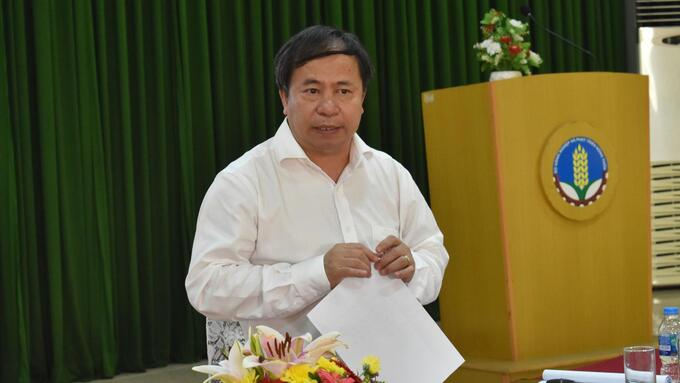
Prof. Dr. Nguyen Hong Son spoke on the issue of plant variety copyright and commercialization of plant varieties at a meeting with the Southern Fruit Institute. Picture: Minh Dam.
The transfer of the right to register for protection and to exercise the rights of the holder of a protection certificate to organizations and persons responsible for the subject or project is strictly necessary according to the provisions of Vietnam’s Intellectual Property Law. It is important to support public science and technology organizations to develop high quality plant varieties for the following reasons:
First, it will be an important motivation for public science and technology organizations to focus their intelligence and resources on breeding high quality plant varieties. At the same time, creating motivation for attracting investment of non-budget capital for research into plant varieties, in accordance with the policy of socialization of scientific research.
Second, generate revenue for public scientific organizations to gradually implement the autonomy mechanism. Typically, only 54.3% of actual needs are currently met with the budget set aside to pay salaries and operate the VAAS device.
Third, to help owners have funds to meet plant variety obligations. In particular, the payment of the annual maintenance fee; Maintaining quality, distinctiveness, homogeneity, stability, cultivation value, utility value of the variety, resistance to seed degradation.
Fourth, generate revenue for the state budget to reinvest in research through tax deductions from the trade in plant varieties.
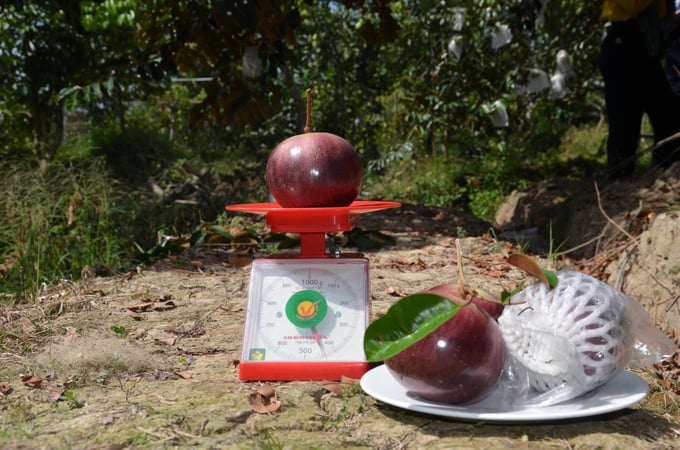
Mica-free breast milk is being considered for trademark protection, but has been bred and widely sold in the market. Picture: Minh Dam.
Fifth, the establishment of a stable fund for research activities on plant varieties, especially perennial plant varieties, to ensure regular and stable research activities at the end of projects and projects.
Sixth, create motivation to encourage organizations and individuals to register to protect intellectual property rights outside Vietnamese territory in accordance with Vietnamese Intellectual Property Law and international conventions to avoid losing copyrights such as plants, thereby becoming a driving force for development to create the knowledge society.
Turns out to be “stolen”.
Although protecting plant variety copyrights is very important nowadays, this issue has not been taken seriously. According to Mr. Nguyen Van Doan, head of the Southern Representative Office – Department of Crop Production, unlike rice and corn varieties, the hybrid varieties of long-term fruit trees take a long time to produce (usually only 6-10 years). lasts at least 15 years, so maintaining copyright is very difficult for businesses. When the seed came out, humans reproduced asexually in very large numbers. He also acknowledged that the management of long-term crops is currently facing many difficulties.
In particular, the case of latex-free Mica Purple breast milk comes from a seedling business household in Son Dinh township, Cho Lach district, Ben Tre province. After being recognized as the leading tree, this unit also cooperates with Hung Khanh Trung B cooperative to build a brand.
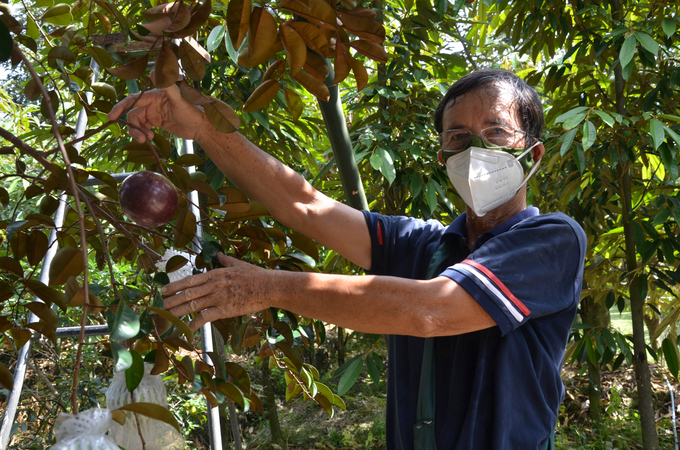
Mr. Nguyen Cong Thanh’s Mica Dairy Farm in collaboration with Mrs. Nguyen Thi Vinh. Picture: Minh Dam.
Ms. Nguyen Thi Vinh, owner of Ngoc Vinh Seedling Production and Trade Facility, Director of Hung Khanh Trung A Cooperative (Mo Cay Bac District, Ben Tre Province), has filed an application for protection of Mica mica variety name with the Ministry of Intellectual Property. Ms. Vinh said it aims to link seedling producers together to bring out uniform and high-quality products for farmers.
However, while waiting for the authorities to issue a protection certificate, this strain has been widely cultivated and sold in the market by local seedling producers, but most of them do not have the prime plants. As a result, the selling price of the Mica Milkweed variety has quickly dropped from VND 150,000/tree to only VND 20,000/tree. However, the quality of the seedlings is very difficult to control. There is also the imitation of production sites and the sale of fake seeds, which are widespread on social networks.
According to Prof. Nguyen Hong Son, Article 31 of the Law on Cultivation confirms that only those who have registered for cultivar trade recognition or self-declared cultivar trade can sell such seedlings. According to Prof. Dr. Nguyen Hong Son, seed copyright is an issue of great concern today, especially for plants propagated by clonal methods.
Breeding rights seen from Thailand’s experience
According to the Vietnam Institute of Agricultural Sciences (VAAS), the entire VAAS conducted 227 research tasks related to crop breeding and selection in the period 2011 – 2020. This means that 390 plant varieties have been recognized for traffic in Vietnam.
Although the number of recognized varieties is quite large, the number of varieties suitable for commercialization and collaboration with copyright exploitation companies is still very small. In the past 10 years, only 79 cultivars have been commercialized and commercially produced (20.25%) of the total number of recognized cultivars, including 6 fruit cultivars, 35 rice cultivars and 38 maize cultivars.
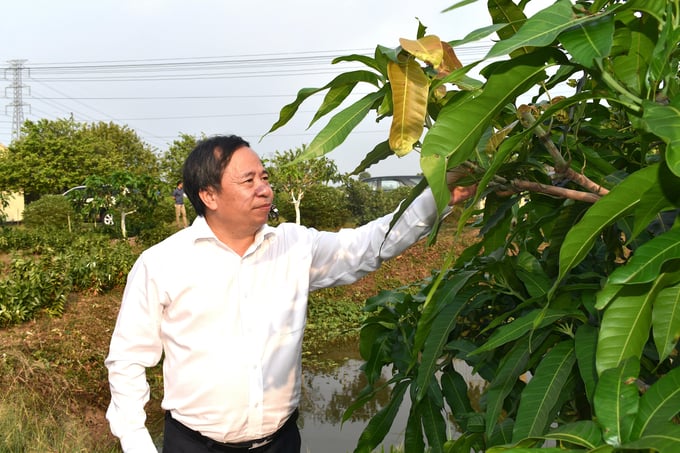
Prof. Dr. Nguyen Hong Son visited an LD12 orchard of thick-skinned mangoes at the Southern Fruit Institute. Picture: Minh Dam.
Currently, the number of varieties transferred by VAAS is in the form of plant variety rights (for fruit varieties and some rice varieties) and the right to use and exploit varieties.
Of the 79 varieties traded, 67 varieties were transferred to companies, 3 varieties were in negotiation phase, 8 varieties were transferred to public non-business entities, 1 variety was transferred to a Laos friend.
The most commercially traded varieties are short-term crops such as rice and corn. In particular, the number of pure varieties, fruit tree varieties and industrial plants transferred is very limited due to the lack of copyright, so companies do not want to preserve them.
Prof. Nguyen Hong Son also shared: Article 28 Chapter 4 of the Sugar Cane Law BE 2527 of Thailand also clearly states that the use of sugar cane varieties is not free. Accordingly, the government will set up a fund and committee to manage the sugar fund. Sugar cane farmers and sugar mills are required to pay research and development costs for sugar cane production based on the amount of sugar cane shipped to the factory, the amount of sugar produced, and the products prescribed by the Fund Council for use in research, development, production expansion, application, and trading of sugar cane and sugar.
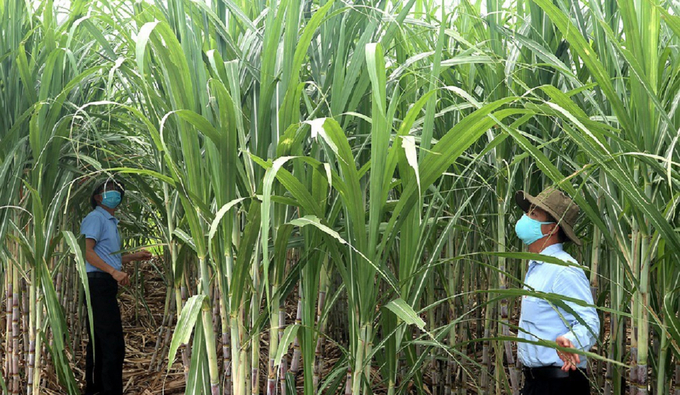
Thailand’s way of managing and paying royalties for sugar cane varieties can be seen as an experience for Vietnam to study and promote. Picture: tsp.
“In fact, in Thailand, seed fees are collected by weighing sugar, not cane cuttings. Because with just one sugar cane plant, farmers can harvest 10 cuttings and then hundreds or thousands of seed cuttings. Therefore, it is necessary to collect sugar through the sugar balance and government support,” Professor Nguyen Hong Son gave an example.
According to VAAS’ experience, it takes about 10 years of continuous research with a budget of VND 16-20 billion to create a high-quality rice variety, from re-creation to traffic recognition. For permanent fruit trees, an uninterrupted period of at least 15 years is required. So to have a good strain that is marketable and widely applicable in production requires a sufficiently long, continuous breeding process with a sufficiently large and stable budget.
From national and international practical experience, if Vietnam performs well and the state adopts policies to ensure collection of plant variety copyrights, set up a stabilization fund and support research, it will provide a good incentive to encourage researchers to cultivate good varieties to accomplish. while more funds are added for research, enough to produce good strains and reduce household expenses.

